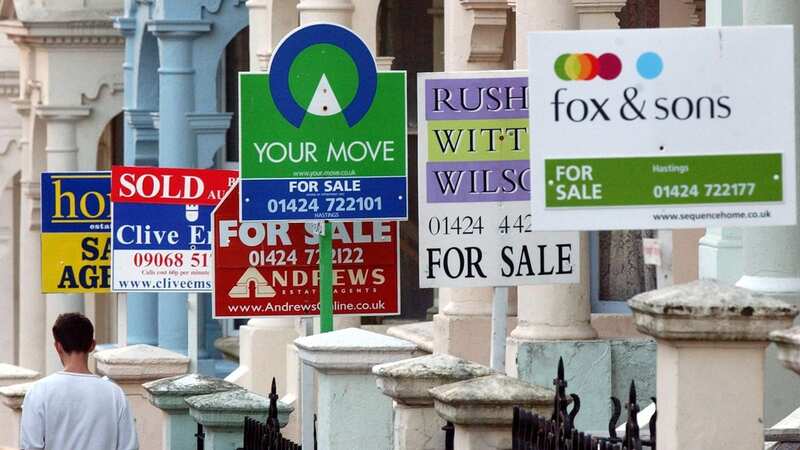UK house prices fall in July by sharpest rate for 14 years, says Nationwide

The average UK house price fell by 3.8% on average in July this year - the fastest annual rate in 14 years, according to the latest Nationwide House Price Index.
The building society says this was the "weakest" reading since July 2009 - which was when the global economy was in the grips of a financial crisis. This month's index is compared with a fall in annual prices of 3.5% in June.
According to Nationwide, house prices dropped by 0.2% month-on-month in July, to reach £260,828 on average with the price of a typical home now sitting 4.5% below the August 2022 peak.
The fall in prices has been blamed on rising interest rates as affordability has become a challenge for house buyers. Mortgage costs have this the highest level for 15 years as the Bank of England continues to battle inflation by upping its base interest rate.
Currently, the base rate sits at 5% with the next Monetary Policy Committee (MPC) meeting around the base rate set for Thursday august 3. Economists believe the rate will increase by 0.25 percentage points - although some believe it could rise by 0.5.
 8 money changes coming in February including Universal Credit and passport fees
8 money changes coming in February including Universal Credit and passport fees
Although a drop in house prices may sound a good thing, as they have climbed in recent years, however, Nationwide's chief economist Robert Gardner said the typical first-time buyer with a deposit of 20% would see mortgage payments at current rates account for 43% of their take-home pay - up from 32% a year ago.
He also noted how the deposit requirement for homes continues to present a "high hurdle" with 10% deposits equivalent to 55% of gross annual average income.
Robert said: "There has been a slight tempering of expectations in recent weeks but longer-term interest rates, which underpin mortgage pricing, remain elevated. As a result, housing affordability remains stretched for those looking to buy a home with a mortgage."
He also noted that unemployment is expected to remain low and the "vast majority of existing borrowers should be able to weather the impact of higher borrowing costs".
He added: "While activity is likely to remain subdued in the near term, healthy rates of nominal income growth, together with modestly lower house prices, should help to improve housing affordability over time, especially if mortgage rates moderate once (the Bank of England base rate) peaks."
Read more similar news:
Comments:
comments powered by Disqus

































